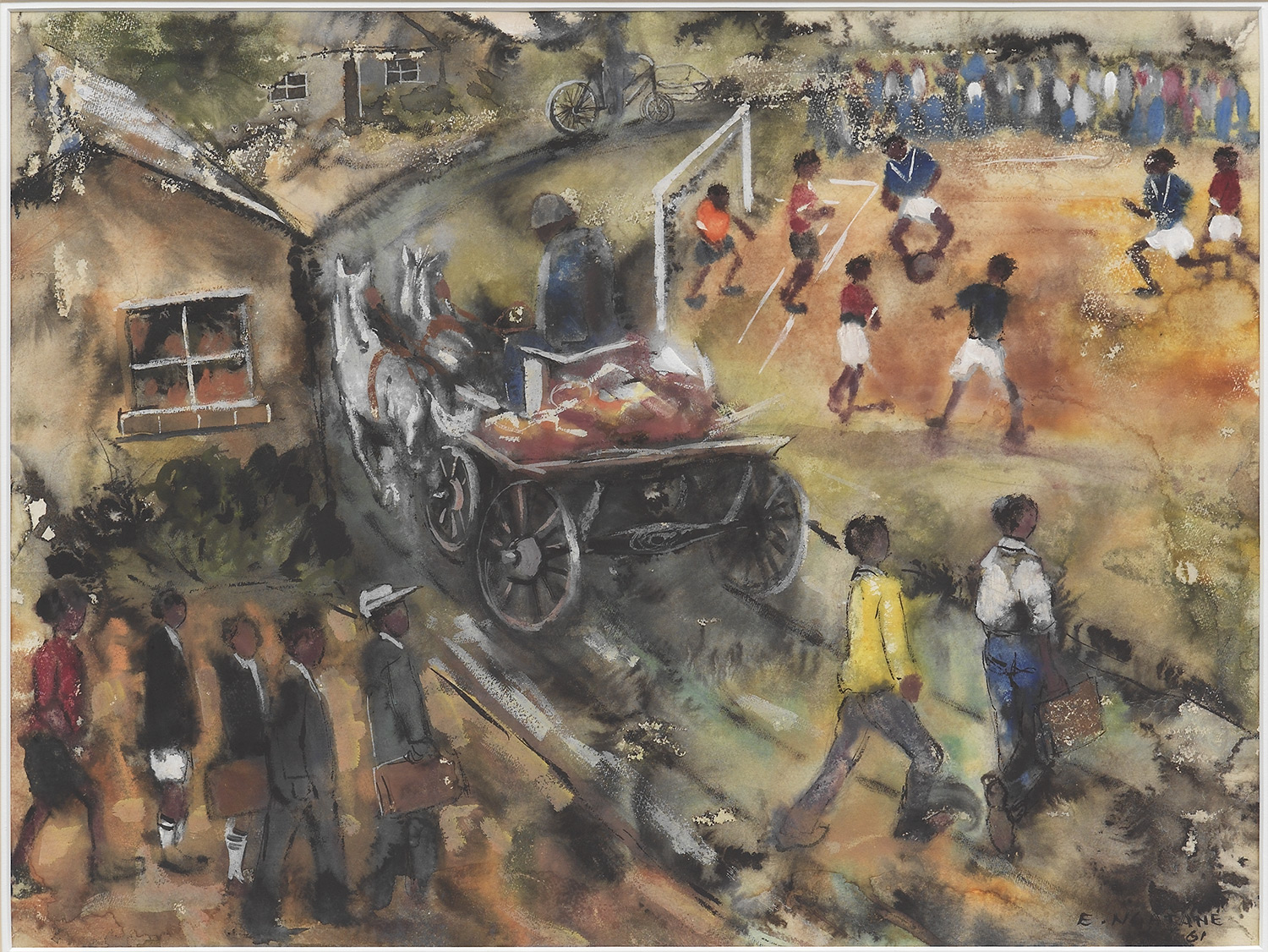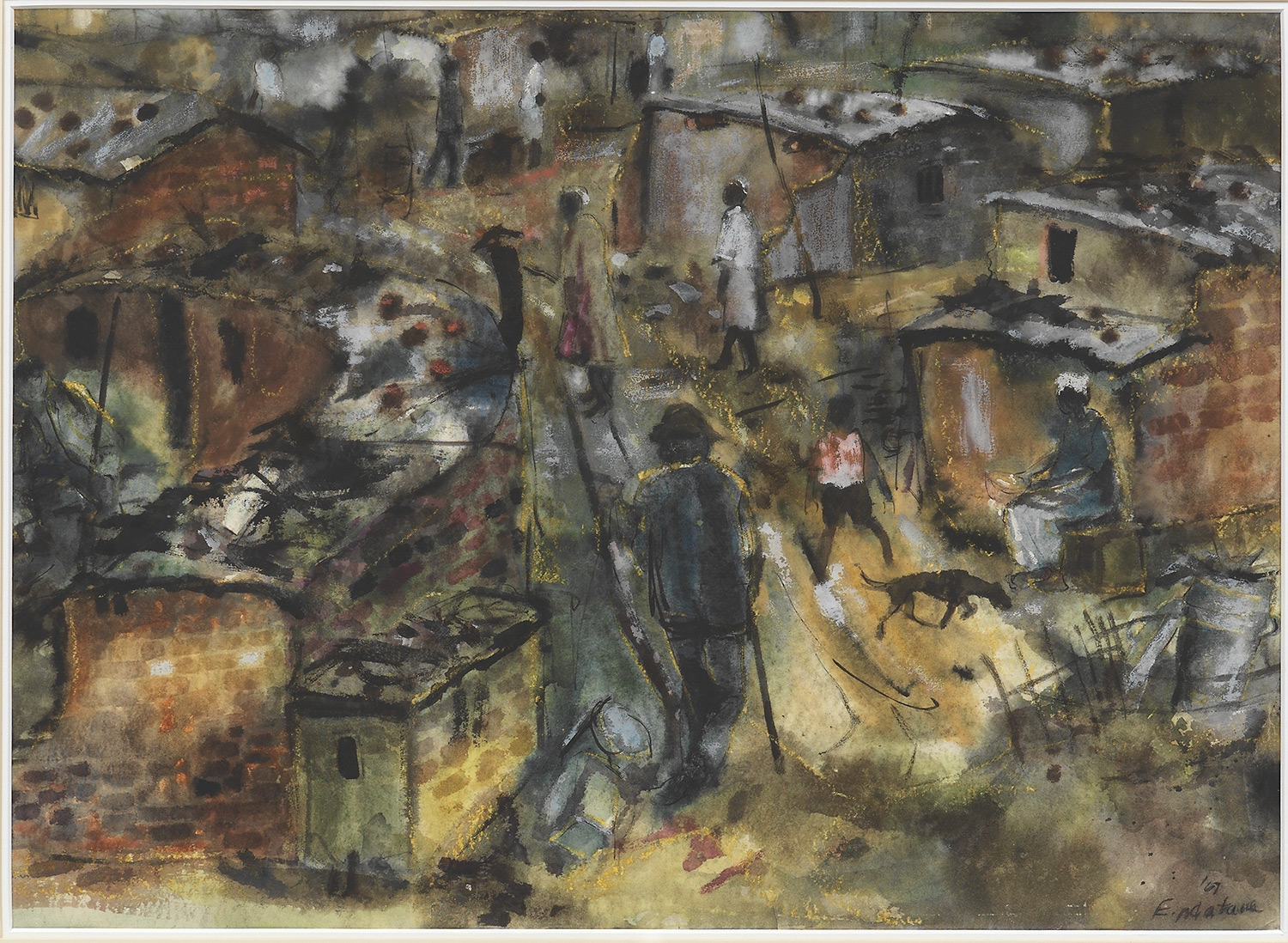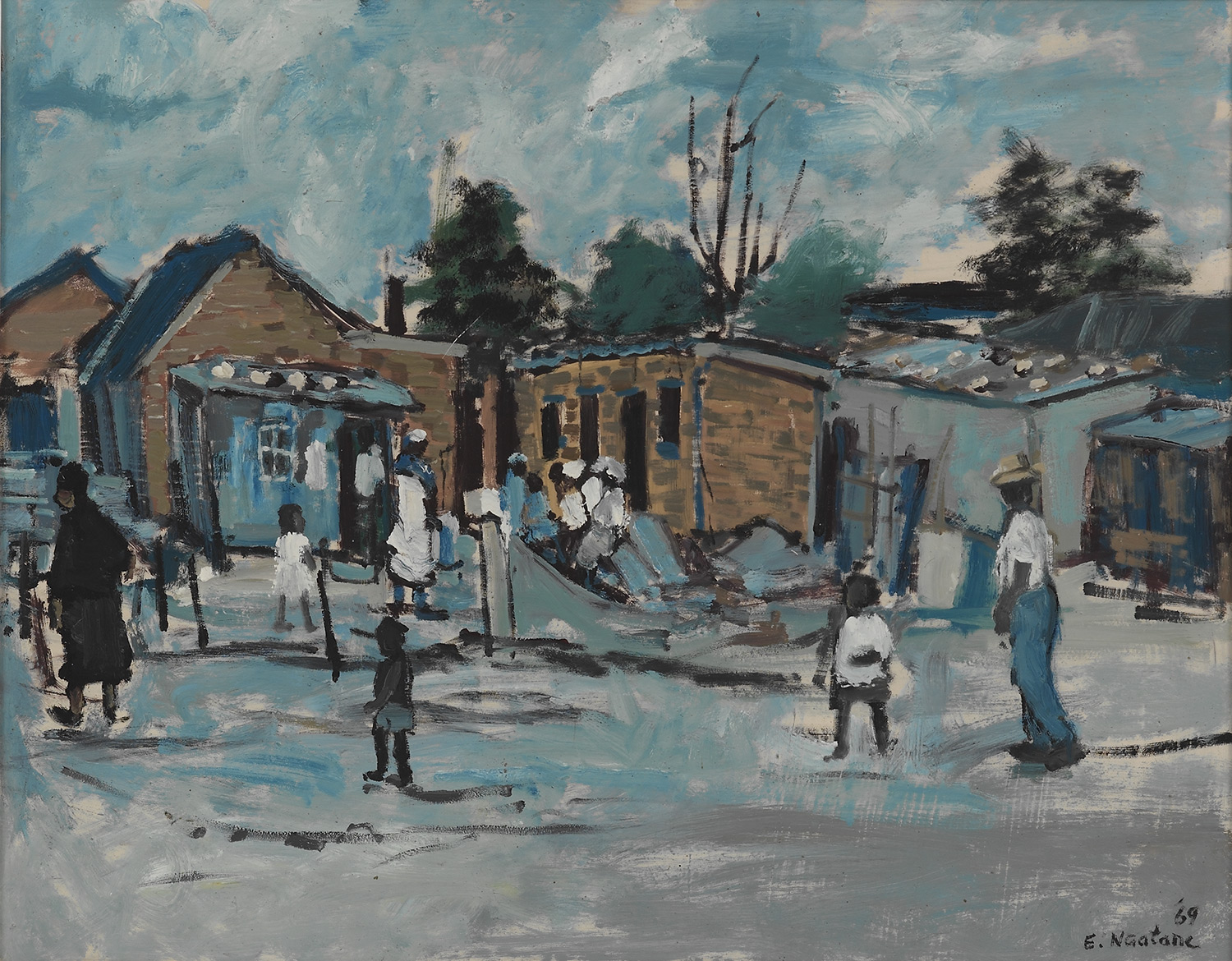Ephraim Mojalefa NGATANE (1938 – 1971)
BIOGRAPHY
Ephraim Mojalefa Ngatane was born in Maseru, Lesotho (then Basutoland) and moved to Johannesburg in about 1943. He was educated at Mooki Memorial School, where his talent was promoted from an early age by his primary school teacher Mrs EL Mooki, and later at the Orlando High School in Soweto.
Between 1952 and 1954, he studied painting with Cecil Skotnes at the Polly Street Art Centre, later going on to teach at the centre and is credited with influencing and developing several major talents – notably those of Dumile Feni, Louis Maqhubela and Ben Macala.
Standing outside of the stylistic mainstream in the Polly Street and Jubilee Centre environment, Ngatane’s concern was for an often politically charged documentary realism.
In 1955, he joined the seminal ‘weekend painters’ group initiated by Durant Sihlali – from whom he also received some instruction at the Polly Street and Jubilee Centres. A distinctively painterly, psychologising and realist tenor came to characterise Ngatane’s work – and, in time, to define a virtual alternative tradition to that of township expressionism.
In 1964, already well established as a professional artist and having held two solo exhibitions, while also making ends meet by painting ceramic pots at the Majolica Pottery in Doornfontein, Ngatane was hospitalised with tuberculosis at the Charles Hurwitz South African National Tuberculosis Sanatorium in Soweto. It was during his confinement that he encountered and inspired the young Dumile Feni, who found in Ngatane a model for his own headstrong practice as an artist. Ngatane and Dumile produced a series of murals at the sanatorium, most of which have subsequently been painted over.
While his work, over time, explored several different registers, what defines Ngatane’s work, as well as his influence on his contemporaries, is its uncompromising concern for the gritty and atmospheric representation of township experience in the South African context of the time.
Apart from being a painter whose importance in the development of South African traditions is increasingly acknowledged, Ngatane was also an accomplished alto-saxopohonist in the jazz idiom. He died of tuberculosis at 33 years of age.




